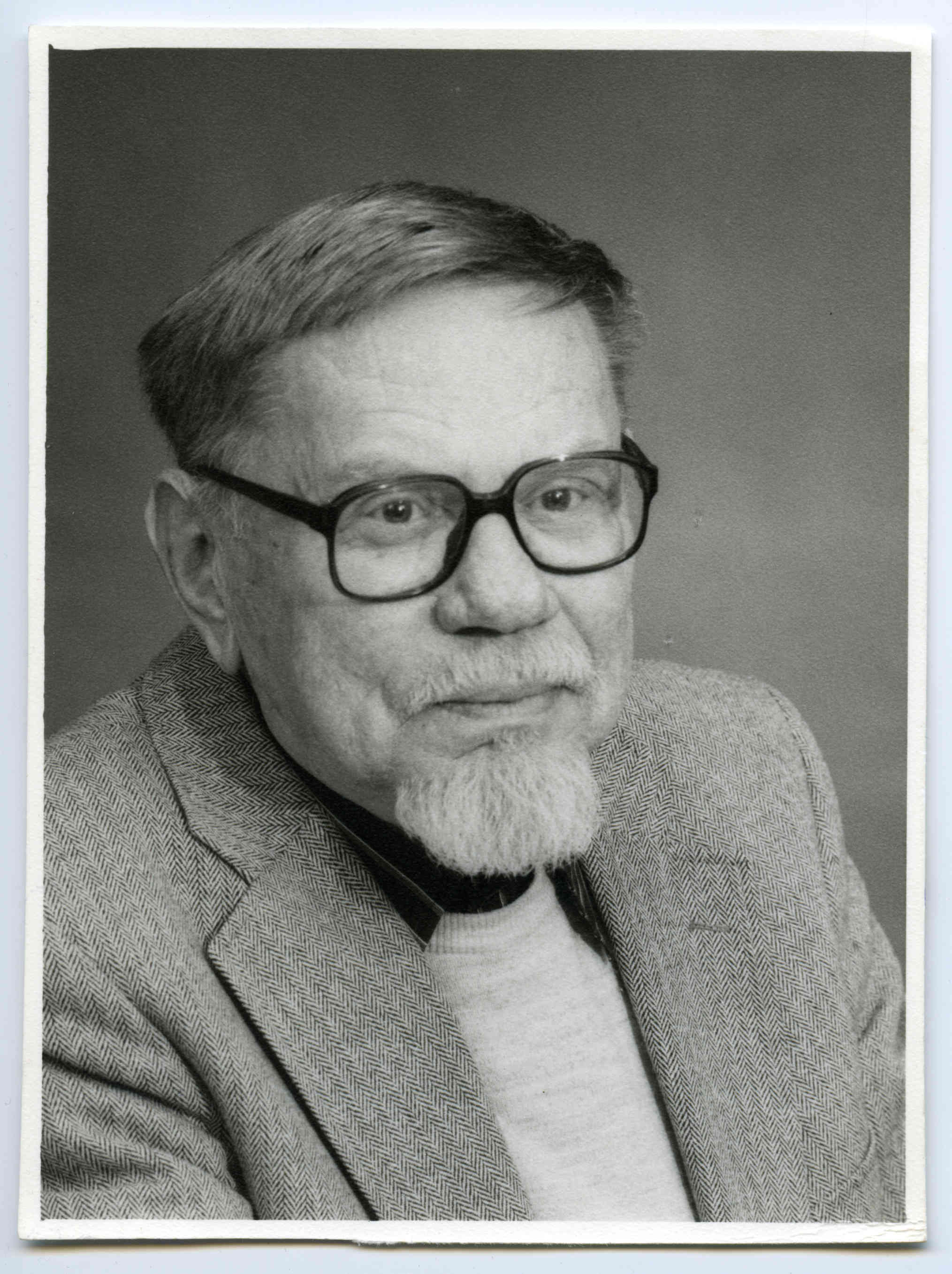
Arno Vihalemm
Arno Vihalemm (born Arnold Koch, 24. V 1911 – 21. VI 1990) was an Estonian poet and artist living abroad.
Arno Vihalemm was born in the Rääma district of Pärnu, the son of a customs official. In 1931 he graduated from Pärnu Boys’ Gymnasium and worked initially as a surveyor’s draughtsman. Among his circle of acquaintances at the time were his slightly younger schoolmate August Sang and Kaarel Ird, a slightly older boy from Rääma. Arno Vihalemm was interested in the theatre and acted in a play staged by Kaarel Ird for the Pärnu Workers’ Theatre. According to Ird’s memoirs, at that stage Vihalemm had already written some poems. From 1935 to 1940 and in 1943 he studied at the Pallas school of art in Tartu, where his teachers were Nikolai Triik, Kaarel Liimand and Aleksander Vardi. His poetry writing continued in Tartu. In November 1936 Vihalemm made his debut with three poems in the journal Looming, and in subsequent years he contributed for the journal. Vihalemm became famous in the late thirties for his epigrams in the newspaper Tänapäev.
In 1944 he moved to Sweden, living in the town of Ystad and working as an artist in a ceramics factory and the director of a painting course, as a museum official and a freelance artist. Study trips took Vihalemm to Germany, Switzerland, Spain and France. His first independent exhibition was in 1955. In the late forties Vihalemm’s main medium as an artist was painting. From the early fifties there was a long period of graphic art, rewarded with recognition. Vihalemm also became known as a book designer. In 1958 Vihalemm published a unique work: a folder of linocuts with verses under the title Marionetid (‘Marionettes’). The graphics in the book have a teasing effect and naive, primitive contours.
Vihalemm was a contemporary of the members of the Arbujad poetry grouping. His early poetry followed their high poetic style, especially the spirit of Heiti Talvik’s epigrams. Vihalemm’s poetry in his first collection, Kaja kivi südames. Luuletusi 1936-1944 (‘Echo in the Heart of the Stone. Poems 1936-1944’, 1954) represents both the Arbujad-inspired poetry published in Looming in the late thirties and comic verse. The final cycles, describing the feelings of an exile, are heavy and depressing in their choice of words. Vihalemm’s mature poetry is characterised by a masterful unification of high and low, of the exalted and the frivolous. His verses are often ironical, self-ironic, sometimes sarcastic. His satire on the injustices of humankind are gloomily compassionate; his verses are abundant in parody and playful verbal imagery. The author’s talent for burlesque was most brilliantly expressed in his 1966 poetry collection Tsoo-loogia ehk ingel lindudega (‘Tso-ology, Or an Angel with the Birds).
Vihalemm translated a selection of Nils Ferlin’s poetry, Laule ja luulet (‘Songs and Poetry’, 1984) from Swedish to Estonian.
Arno Vihalemm’s sons were Rein Vihalemm (1938 – 2015), a philosopher of science, and Peeter Vihalemm (b. 1944), a professor of media studies.
L. P. (Translated by C. M.)
Books in Estonian
Poetry
Kaja kivi südames: luuletusi 1936–1944. Lund: Eesti Kirjanike Kooperatiiv, 1954, 64 lk.
Marionetid: mapp linoollõikeid värssidega. Ystad: Vihalemm, 1958, 20 lk.
Consolationes. Lund: Eesti Kirjanike Kooperatiiv, 1961, 95 lk.
Ühe Pärnust pärit poeedi palgepooli. Tallinn, 1965, 32 lk.
Tsoo-loogia ehk ingel lindudega. Lund: Eesti Kirjanike Kooperatiiv, 1966, 95 lk.
Ühe keelega kannel: riimitud ja riimimata antiluulet 1967–1978. Lund: Eesti Kirjanike Kooperatiiv, 1979, 79 lk.
Viis on viis: viies kogu värsse 1936–1986. Lund: Eesti Kirjanike Kooperatiiv, 1986, 62 lk.
Lugemik: autoriseeritud valikkogu, 1947–89. Tallinn: Eesti Raamat, 1991, 156 lk.
Kogutud luule. Tallinn: Eesti Keele Sihtasutus, 2011, 471 lk.
Prose
Kunstnik eesti kirjanduses: tüübikriitiline veste. Rooma: Maarjamaa, 1975, 76 lk.



